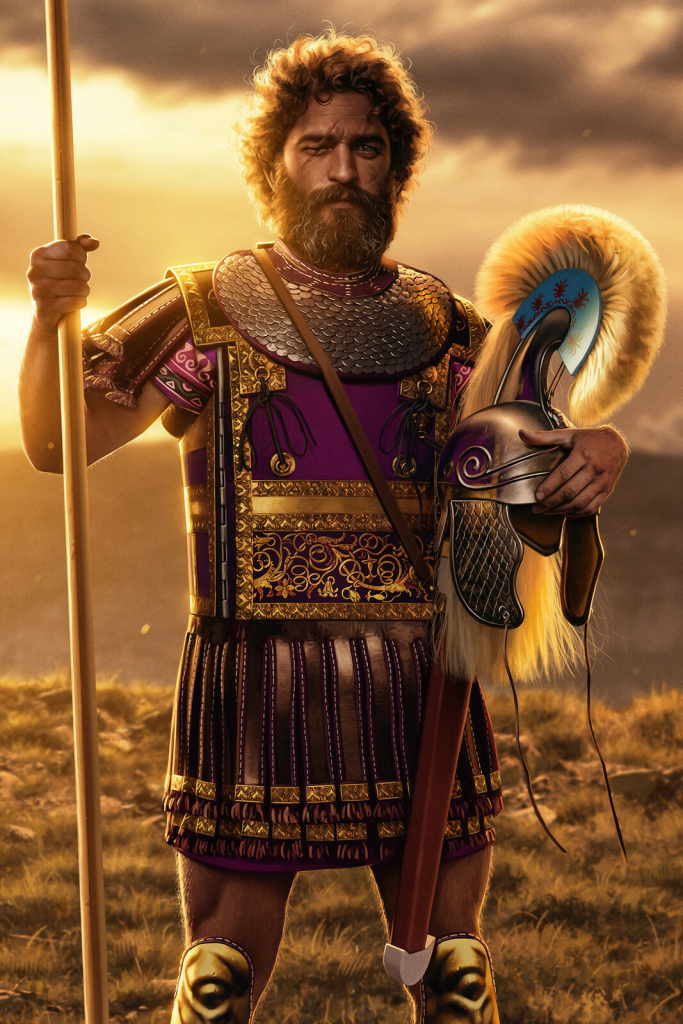In 356 BCE, in the royal palace of Macedonia, King Philip II welcomed his newborn son and named him Alexander. Little did the world know that this child would grow up to be one of the greatest military leaders in history. Philip ensured that his son received the finest education, even hiring the legendary Greek philosopher Aristotle as his tutor. Under his guidance, young Alexander developed a deep love for literature, particularly the works of Homer.
The Making of a King

At just 16, Alexander was left in charge of Macedonia while his father was away on a military campaign. He quickly proved his leadership by suppressing a rebellion in the north. By 18, he fought alongside his father against a Greek uprising, demonstrating extraordinary military genius. However, fate took a dramatic turn when Philip II was assassinated in 336 BCE. At only 20 years old, Alexander was declared king.
Determined to secure his throne, Alexander swiftly eliminated potential rivals, including four of his brothers. With Macedonia and Greece firmly under his control, his ambitions turned eastward—toward the mighty Persian Empire.
The Persian Conquest
In 334 BCE, Alexander, now the supreme commander of the Macedonian-Greek army, led 30,000 infantry and 5,000 cavalry across the Hellespont into Asia Minor (modern-day Turkey). This marked the beginning of his legendary conquests. Facing the Persian forces head-on, Alexander’s tactical brilliance allowed him to swiftly overrun Asia Minor.
The following year, in 333 BCE, he encountered King Darius III of Persia at the Battle of Issus. Despite being vastly outnumbered, Alexander’s disciplined forces crushed the Persian army, forcing Darius to flee. Alexander then pushed south, capturing Syria, Lebanon, and Egypt with little resistance. In 331 BCE, he delivered the decisive blow at the Battle of Gaugamela, securing control over Babylon and Iran. By 330 BCE, the once-great Persian Empire had fallen, and Alexander was its new ruler.
The Unstoppable War Machine: The Macedonian Phalanx
Alexander’s military success wasn’t just a result of his personal bravery—his army was equipped with one of the most formidable formations in history: the Macedonian phalanx. This was an improved version of the traditional Greek hoplite formation. Each soldier carried a sarissa, a spear up to 6 meters long, which created an impenetrable wall of spikes. The phalanx moved as a single, disciplined unit, cutting through enemy forces with devastating efficiency.
Unlike typical commanders who directed battles from behind, Alexander led from the front, charging into battle on horseback. His fearless leadership earned him the loyalty of his troops and struck fear into his enemies.
Beyond Persia: The Indian Campaign
After securing the Persian Empire, Alexander set his sights on India. In 326 BCE, he clashed with King Porus at the Battle of the Hydaspes River (modern-day Punjab). Porus’s army, featuring war elephants, put up a fierce resistance, but Alexander’s superior strategy ultimately led to victory. Despite his success, his exhausted troops refused to march further into the unknown lands of India. Reluctantly, Alexander turned back and began his journey home.
The Legacy of Alexander
By 324 BCE, after a decade of relentless conquest, Alexander returned to Babylon. He had built an empire spanning 5 million square kilometers, stretching from Greece to the Indus River—making it the largest in the world at the time.
However, his reign was cut short. In 323 BCE, at the young age of 32, Alexander died under mysterious circumstances. Some speculate it was poison; others believe it was disease. Regardless, his legacy endured.
Alexander’s conquests had far-reaching cultural impacts. His campaigns spread Greek culture across the East, blending it with Persian, Egyptian, and Indian traditions. This fusion led to the Hellenistic Age, a period of unprecedented cultural and scientific advancements. His influence even extended to modern military strategy, inspiring leaders such as Julius Caesar and Napoleon Bonaparte.
The Legend of the Gordian Knot
One of the most famous stories about Alexander is his encounter with the Gordian Knot. According to legend, whoever could untie this intricate knot would rule all of Asia. After struggling to solve the puzzle, Alexander simply drew his sword and cut through it, declaring, “I will solve it my way!” This bold approach symbolized his belief in forging his own destiny rather than following conventional rules.
Conclusion
Alexander the Great was more than just a conqueror—he was a visionary who reshaped the ancient world. His military strategies, cultural influence, and fearless leadership continue to be studied today. From the battlefields of Persia to the libraries of Alexandria, his legacy remains unparalleled.

No comments yet.